안녕하세요. 이번에는 U5PVR 에 설치한 APM 서버를 활용해 보도록 하겠습니다.
1. XpressEngine 설치
2. Wordpress 설치
3. phpsysinfo 설치
4. nextcloud 설치
5. h5ai 설치
이 순서대로 진행하도록 하겠습니다.
웹 서비스 설치 과정상 가상호스트 부분은 다루지 않습니다. 가상호스트 부분은 카페의 검색을 통해서 설정해 주시면 됩니다. 대부분 사용자분들은 가상호스트가 지원되는 도메인을 사용하는것이 아니라 iptime.org 의 도메인을 사용하고 있어서 서브도메인 설정이 불가능한 상태입니다.
따라서 이번 가이드는 가상호스트 1개로 설정하는 가이드를 작성하려고 합니다.
기본적으로 설정이 되어 있지 않아서 표준 시간대를 맞춰 주셔야 합니다.
root@u5pvr-debian:/mnt/sda/sda1/htdocs# dpkg-reconfigure tzdata
Current default time zone: 'Asia/Seoul'
Local time is now: Wed Apr 12 19:28:00 KST 2017.
Universal Time is now: Wed Apr 12 10:28:00 UTC 2017.
root@u5pvr-debian:/mnt/sda/sda1/htdocs#


시간이 맞는지 확인합니다.
root@u5pvr-debian:/mnt/sda/sda1/htdocs# date
Wed Apr 12 19:29:20 KST 2017
root@u5pvr-debian:/mnt/sda/sda1/htdocs#
실제로 기본 웹 루트는 /var/www/html 로 지정되어 있습니다.
그러나 리눅스 펌웨어의 경우 안드로이드 파티션의 data 에 설치가 되기 때문에 실 용량은 10GB 정도로 웹서버를 구동하기에 용량이 쬐끔 부족합니다.
저는 이번에 사타 하드디스크로 웹 루트를 옮겨서 가이드를 작성해 보도록 하겠습니다.
(심링크나 바인드 마운트로 해결할 수 있지만 심링크의 경우 특정 웹 서비스에 문제가 생기고 바인드 마운트의 경우 U5PVR 을 재시작할 때 마다 지정해 줘야합니다. -> 물론 스크립트로 해결이 가능합니다.)
SATA 디스크는 /mnt/sda/sda1 으로 잡혀있는 상태입니다.
사타 디스크의 경우 NTFS 파일 시스템으로 되어 있어서 특정한 웹 어플리케이션이 웹루트에 대해서 특정한 권한을 요구하거나 하게 되면 문제가 발생합니다.
해결책으로는 ext4 로 포맷하여 디스크를 붙이는 것입니다.
저는 ext4 로 포맷한 상태에서 가이드를 작성하고 있습니다.
그럼 시작합니다.
저는 /mnt/sda/sda1/htdocs 폴더를 생성하고 그 폴더를 웹루트로 사용하겠습니다.
기본적으로 웹루트를 수정하기 위해서는 아래의 수정과정을 거쳐야 합니다.
일단 웹루트로 사용될 폴더를 지정합니다.
root@u5pvr-debian:~# mkdir /mnt/sda/sda1/htdocs
root@u5pvr-debian:~#
다음으로 /etc/apache2/apache2.conf 파일과 /etc/apache2/sites-enabled/000-default.conf 파일을 수정합니다.
root@u5pvr-debian:~# nano /etc/apache2/apache2.conf
# 쭉 내리다 보면 아래의 부분이 있습니다.
Options FollowSymLinks
AllowOverride None
Require all denied
</Directory>
<Directory /usr/share>
AllowOverride None
Require all granted
</Directory>
<Directory /mnt/sda/sda1/htdocs> <-- 경로를 수정합니다.
Options Indexes FollowSymLinks
AllowOverride None
Require all granted
</Directory>
#<Directory /srv/>
# Options Indexes FollowSymLinks
# AllowOverride None
root@u5pvr-debian:~# nano /etc/apache2/sites-enabled/000-default.conf
<VirtualHost *:80>
# The ServerName directive sets the request scheme, hostname and port t$
# the server uses to identify itself. This is used when creating
# redirection URLs. In the context of virtual hosts, the ServerName
# specifies what hostname must appear in the request's Host: header to
# match this virtual host. For the default virtual host (this file) this
# value is not decisive as it is used as a last resort host regardless.
# However, you must set it for any further virtual host explicitly.
ServerAdmin webmaster@localhost
DocumentRoot /mnt/sda/sda1/htdocs <-- 이 부분을 수정합니다.
# Available loglevels: trace8, ..., trace1, debug, info, notice, warn,
# error, crit, alert, emerg.
# It is also possible to configure the loglevel for particular
# modules, e.g.
#LogLevel info ssl:warn
이것으로 디렉터리 설정은 끝났습니다.
추가적으로 웹서버 실행계정인 www-data 가 외장 디스크를 읽을 권한이 필요함으로 아래의 권한을 줍니다.
root@u5pvr-debian:~# adduser www-data aid_media_rw
The user `www-data' is already a member of `aid_media_rw'.
root@u5pvr-debian:~# adduser www-data aid_sdcard_r
The user `www-data' is already a member of `aid_sdcard_r'.
root@u5pvr-debian:~#
웹서버를 재시작 합니다.
root@u5pvr-debian:~# service apache2 restart
[ ok ] Restarting web server: apache2.
root@u5pvr-debian:~#
XE 설치파일을 공식 사이트에서 받으셔서 압축을 푸신 다음에 WinSCP 로 넣어주시거나 아니면 아래의 wget 으로 직접 받으셔도 무방합니다.
https://www.xpressengine.com/
아래 설명에서 wget 으로 받는 주소는 그떄 그때 다를 수 있습니다!!
root@u5pvr-debian:~# cd /mnt/sda/sda1/htdocs
root@u5pvr-debian:/mnt/sda/sda1/htdocs# wget http://download.xpressengine.com/download/18325662/22755789
converted 'http://download.xpressengine.com/download/18325662/22755789' (ANSI_X3.4-1968) -> 'http://download.xpressengine.com/download/18325662/22755789' (UTF-8)
--2017-04-12 19:17:13-- http://download.xpressengine.com/download/18325662/22755789
Resolving download.xpressengine.com (download.xpressengine.com)... 1.255.50.158, 1.255.50.165
Connecting to download.xpressengine.com (download.xpressengine.com)|1.255.50.158|:80... connected.
HTTP request sent, awaiting response... 200 OK
Length: 11828919 (11M) [application/zip]
Saving to: '22755789'
22755789 100%[=======================================================>] 11.28M 11.0MB/s in 1.0s
2017-04-12 19:17:15 (11.0 MB/s) - '22755789' saved [11828919/11828919]
root@u5pvr-debian:/mnt/sda/sda1/htdocs#
받은 파일의 압축을 풀기 위해서 unzip 패키지를 설치하고 압축을 풀어줍니다.
root@u5pvr-debian:/mnt/sda/sda1/htdocs# apt-get install unzip
Reading package lists... Done
Building dependency tree
Reading state information... Done
unzip is already the newest version.
0 upgraded, 0 newly installed, 0 to remove and 0 not upgraded.
root@u5pvr-debian:/mnt/sda/sda1/htdocs#
root@u5pvr-debian:/mnt/sda/sda1/htdocs# unzip 22755789
Archive: 22755789
creating: xe/
creating: xe/modules/
creating: xe/modules/rss/
inflating: xe/modules/rss/rss.model.php
inflating: xe/modules/rss/rss.admin.view.php
inflating: xe/modules/rss/rss.controller.php
inflating: xe/modules/rss/rss.view.php
inflating: xe/modules/rss/rss.admin.controller.php
creating: xe/modules/rss/tpl/
inflating: xe/modules/rss/tpl/atom10.html
.........
# 생각하시는 경로에 맞게 압축이 풀렸는지 확인합니다.
# 저는 /mnt/sda/sda1/htdocs/xe 로 풀려고 하고 있습니다.
# 확인을 하고 받은 압축파일은 지워줍니다.
root@u5pvr-debian:/mnt/sda/sda1/htdocs# ls
22755789 xe
root@u5pvr-debian:/mnt/sda/sda1/htdocs# cd xe
root@u5pvr-debian:/mnt/sda/sda1/htdocs/xe# ls
CONTRIBUTING.md LICENSE addons classes common config layouts m.layouts widgets
COPYRIGHT README.md admin codeception.dist.yml composer.json index.php libs modules widgetstyles
root@u5pvr-debian:/mnt/sda/sda1/htdocs/xe# cd ..
root@u5pvr-debian:/mnt/sda/sda1/htdocs# rm 22755789
root@u5pvr-debian:/mnt/sda/sda1/htdocs#
# www-data 로 소유자 및 그룹을 설정합니다.
root@u5pvr-debian:/mnt/sda/sda1/htdocs# chown www-data:www-data -R xe
다음으로 phpmyadmin 으로 접근하여 xpressengine 에 사용할 DB 를 하나 생성합니다.

다음 http://u5pvr_ip_address/xe 로 접근하여 xe 설치를 진행합니다.


아래의 오류가 뜨면 퍼미션을 한번 확인해 주시길 바랍니다.



아래의 정보를 입력합니다.
호스트네임을 꼭 localhost 로 해 주시길 바랍니다.



초기 계정 설정을 합니다.

정상적으로 설치가 완료 되었습니다.

대시보드 입니다.



쉬운설치도 잘 동작합니다.


이렇게 XE 를 설치해서 운용이 가능합니다.
차후에 속도 테스트 겸 제가 테스트 페이지를 하나 올리도록 하겠습니다.
3. php 를 통한 업로드 용량 제한 해결하기
기본적으로 php 업로드 용량이 2MB 로 제한이 되어 있습니다.
이 문제를 해결하기 위해서 아래의 설정을 진행합니다.
(실제로 3GB 도 업로드 해 보았습니다만 그 이상의 용량도 올락가는 지는 모르겠네요.)
php.ini 파일이 내용이 길기 때문에 F6 을 통해 검색 후 수정을 해 주시면 편리합니다.
(차후에 기초 쉘 사용법 강좌가 올라갈 예정입니다.)
아래와 같이 값을 수정하고 아파치 서버를 재시작하면 업로드 용량 제한이 16GB 로 바뀌었음을 볼 수 있습니다.
한편 업로드 관련하여 tmp 디렉터리가 내부 SD카드에 존재하면
초기에 업로드 진행시 내장 SD카드로 업로드 되었다가 -> 지정한 디렉터리로 옮겨가기 때문에 이 오버헤드를 줄이기 위해서 아래와 같이 설정합니다.
root@u5pvr-debian:~# mkdir /mnt/sda/sda1/tmp
root@u5pvr-debian:~# chmod 777 /mnt/sda/sda1/tmp
root@u5pvr-debian:~# nano /etc/php5/apache2/php.ini
max_input_time = 86400
max_execution_time = 86400
post_max_size = 16384M
upload_max_filesize = 16384M
upload_tmp_dir = /mnt/sda/sda1/tmp
root@u5pvr-debian:~# service apache2 restart
[ ok ] Restarting web server: apache2.
root@u5pvr-debian:~#
XE 에서 게시판 업로드 용량 제한을 체크해 보겠습니다. 실제로는 16기가 까지 올라가는지는 모르겠지만 3기가는 성공했습니다.

2번과 동일하게 워드프레스에 사용될 DB 하나를 생성합니다.
저는 wordpress 라고 생성하였습니다.

그리고 설치파일을 내려받습니다.
https://ko.wordpress.org/
아래의 과정으로 설치를 진행합니다.
다운을 받고 압축을 풀고 권한을 www-data 에 주는 과정입니다.
root@u5pvr-debian:~# cd /mnt/sda/sda1/htdocs/
root@u5pvr-debian:/mnt/sda/sda1/htdocs# wget https://ko.wordpress.org/wordpress-4.7.3-ko_KR.zip
converted 'https://ko.wordpress.org/wordpress-4.7.3-ko_KR.zip' (ANSI_X3.4-1968) -> 'https://ko.wordpress.org/wordpress-4.7.3-ko_KR.zip' (UTF-8)
--2017-04-13 19:31:06-- https://ko.wordpress.org/wordpress-4.7.3-ko_KR.zip
Resolving ko.wordpress.org (ko.wordpress.org)... 66.155.40.250, 66.155.40.249
Connecting to ko.wordpress.org (ko.wordpress.org)|66.155.40.250|:443... connected.
HTTP request sent, awaiting response... 200 OK
Length: 9218185 (8.8M) [application/zip]
Saving to: 'wordpress-4.7.3-ko_KR.zip'
wordpress-4.7.3-ko_ 100%[=====================>] 8.79M 3.44MB/s in 2.6s
2017-04-13 19:31:10 (3.44 MB/s) - 'wordpress-4.7.3-ko_KR.zip' saved [9218185/9218185]
root@u5pvr-debian:/mnt/sda/sda1/htdocs# unzip wordpress-4.7.3-ko_KR.zip
root@u5pvr-debian:/mnt/sda/sda1/htdocs# chown www-data:www-data -R wordpress
root@u5pvr-debian:/mnt/sda/sda1/htdocs#
설치를 위해 http://u5pvr_ip_address/wordpress 로 접근합니다.

DB 설정을 진행합니다.
사용하실 DB 이름과 mysql 계정을 입력하세요.
(항상 저는 테스트용이기 때문에 root로 설정해 둡니다. 보안을 위해서라면 아니지요 ㅎㅎ)


사이트 설정을 진행합니다.


설치가 다 되면 아래처럼 로그인 창이 뜹니다.

로그인 후에는 대시보드가 뜨네요.

테스트로 게시글 하나 작성해 보았습니다.
첨부파일로 피스파이스 9.1 을 첨부했네요..
잘 됩니다.


phpsysinfo 는 시스템 정보를 웹으로 보여주는 웹 어플리케이션입니다.
http://phpsysinfo.github.io/phpsysinfo/
아래의 방법으로 설치를 진행합니다.
root@u5pvr-debian:/mnt/sda/sda1/htdocs# wget https://github.com/phpsysinfo/phpsysinfo/archive/v3.2.7.zip
converted 'https://github.com/phpsysinfo/phpsysinfo/archive/v3.2.7.zip' (ANSI_X3.4-1968) -> 'https://github.com/phpsysinfo/phpsysinfo/archive/v3.2.7.zip' (UTF-8)
--2017-04-13 19:42:57-- https://github.com/phpsysinfo/phpsysinfo/archive/v3.2.7.zip
Resolving github.com (github.com)... 192.30.255.112, 192.30.255.113
Connecting to github.com (github.com)|192.30.255.112|:443... connected.
HTTP request sent, awaiting response... 302 Found
Location: https://codeload.github.com/phpsysinfo/phpsysinfo/zip/v3.2.7 [following]
converted 'https://codeload.github.com/phpsysinfo/phpsysinfo/zip/v3.2.7' (ANSI_X3.4-1968) -> 'https://codeload.github.com/phpsysinfo/phpsysinfo/zip/v3.2.7' (UTF-8)
--2017-04-13 19:42:58-- https://codeload.github.com/phpsysinfo/phpsysinfo/zip/v3.2.7
Resolving codeload.github.com (codeload.github.com)... 192.30.253.121, 192.30.253.120
Connecting to codeload.github.com (codeload.github.com)|192.30.253.121|:443... connected.
HTTP request sent, awaiting response... 200 OK
Length: unspecified [application/zip]
Saving to: 'v3.2.7.zip'
v3.2.7.zip [ <=> ] 1.24M 497KB/s in 2.6s
2017-04-13 19:43:02 (497 KB/s) - 'v3.2.7.zip' saved [1298976]
root@u5pvr-debian:/mnt/sda/sda1/htdocs#
root@u5pvr-debian:/mnt/sda/sda1/htdocs# unzip v3.2.7.zip
Archive: v3.2.7.zip
47a06bb5baa48c7a0d6d0b05eb6cd2a4724f4345
creating: phpsysinfo-3.2.7/
extracting: phpsysinfo-3.2.7/.gitignore
inflating: phpsysinfo-3.2.7/.htaccess
inflating: phpsysinfo-3.2.7/.travis.yml
inflating: phpsysinfo-3.2.7/CHANGELOG.md
inflating: phpsysinfo-3.2.7/COPYING
inflating: phpsysinfo-3.2.7/Dockerfile
inflating: phpsysinfo-3.2.7/README.md
........
# 제가 원하는 웹 URL 모양과 다르기 때문에 mv 명령으로 이름을 바꿉니다.
root@u5pvr-debian:/mnt/sda/sda1/htdocs# ls
22755789 phpsysinfo-3.2.7 v3.2.7.zip wordpress wordpress-4.7.3-ko_KR.zip xe
root@u5pvr-debian:/mnt/sda/sda1/htdocs# mv phpsysinfo-3.2.7/ phpsysinfo
root@u5pvr-debian:/mnt/sda/sda1/htdocs# chown www-data:www-data -R phpsysinfo/
root@u5pvr-debian:/mnt/sda/sda1/htdocs#
http://u5pvr_ip_address/phpsysinfo 로 이동하여 확인해 봅니다.
아래처럼 에러가 발생합니다.
이 문제는 config 파일을 설정해 주지 않아서 발생하는 문제인데 저는 기본 셋팅값을 쓰도록 하겠습니다.

root@u5pvr-debian:/mnt/sda/sda1/htdocs# cd phpsysinfo/
root@u5pvr-debian:/mnt/sda/sda1/htdocs/phpsysinfo# ls
CHANGELOG.md README.md data index.php language phpsysinfo3.xsd sample xml.php
COPYING README_PLUGIN.md gfx js phpsysinfo.ini.new plugins templates
Dockerfile composer.json includes js.php phpsysinfo.xslt read_config.php tools
root@u5pvr-debian:/mnt/sda/sda1/htdocs/phpsysinfo# mv phpsysinfo.ini.new phpsysinfo.ini
root@u5pvr-debian:/mnt/sda/sda1/htdocs/phpsysinfo#
다시한번 접근해 봅니다.
시스템 정보가 일목요연하게 뜹니다 ㅎㅎ

nextcloud 는 설정할 것이 매우 많습니다만 이번 가이드는 아주 간단히만 작성합니다.
https://nextcloud.com/
아래처럼 설치를 진행합니다.
먼저 사용할 DB 를 만듭니다. 저는 nextcloud 로 만들었습니다.

root@u5pvr-debian:/mnt/sda/sda1/htdocs# wget https://download.nextcloud.com/server/releases/nextcloud-11.0.2.zip
converted 'https://download.nextcloud.com/server/releases/nextcloud-11.0.2.zip' (ANSI_X3.4-1968) -> 'https://download.nextcloud.com/server/releases/nextcloud-11.0.2.zip' (UTF-8)
--2017-04-13 19:52:20-- https://download.nextcloud.com/server/releases/nextcloud-11.0.2.zip
Resolving download.nextcloud.com (download.nextcloud.com)... 88.198.160.133
Connecting to download.nextcloud.com (download.nextcloud.com)|88.198.160.133|:443... connected.
HTTP request sent, awaiting response... 200 OK
Length: 50553989 (48M) [application/zip]
Saving to: 'nextcloud-11.0.2.zip'
nextcloud-11.0.2.zip 100%[=======================================================>] 48.21M 3.51MB/s in 16s
2017-04-13 19:52:38 (3.04 MB/s) - 'nextcloud-11.0.2.zip' saved [50553989/50553989]
root@u5pvr-debian:/mnt/sda/sda1/htdocs# chown www-data:www-data -R nextcloud
root@u5pvr-debian:/mnt/sda/sda1/htdocs#
http://u5pvr_ip_address/nextcloud 로 이동하여 설치를 진행합니다.
아래처럼 php5-curl 모듈이 설치되지 않았다고 설치가 진행되지 않네요.

그래서 설치를 진행하고 다시 접근합니다.
root@u5pvr-debian:/mnt/sda/sda1/htdocs# apt-get install php5-curl
Reading package lists... Done
Building dependency tree
Reading state information... Done
The following NEW packages will be installed:
php5-curl
0 upgraded, 1 newly installed, 0 to remove and 0 not upgraded.
Need to get 24.8 kB of archives.
After this operation, 64.5 kB of additional disk space will be used.
Get:1 http://ftp.debian.org/debian/ jessie/main php5-curl armhf 5.6.29+dfsg-0+deb8u1 [24.8 kB]
Fetched 24.8 kB in 1s (23.3 kB/s)
Selecting previously unselected package php5-curl.
(Reading database ... 29295 files and directories currently installed.)
Preparing to unpack .../php5-curl_5.6.29+dfsg-0+deb8u1_armhf.deb ...
Unpacking php5-curl (5.6.29+dfsg-0+deb8u1) ...
Processing triggers for libapache2-mod-php5 (5.6.29+dfsg-0+deb8u1) ...
Setting up php5-curl (5.6.29+dfsg-0+deb8u1) ...
Creating config file /etc/php5/mods-available/curl.ini with new version
php5_invoke: Enable module curl for apache2 SAPI
php5_invoke: Enable module curl for cli SAPI
Processing triggers for libapache2-mod-php5 (5.6.29+dfsg-0+deb8u1) ...
root@u5pvr-debian:/mnt/sda/sda1/htdocs# service apache2 restart
[ ok ] Restarting web server: apache2.
root@u5pvr-debian:/mnt/sda/sda1/htdocs#
설치가 잘 진행됩니다. 관리자 계정정보를 입력해 주세요.

DB 설정입니다.

설치가 완료되면 아래와 같이 접근이 됩니다.



관리창에 가서 시스템 정보를 보았습니다.

추가적으로 .htaccess 부분과 https SSL 설정 등을 해야하지만 이 가이드에서는 작성하지 않도록 하겠습니다.
파일 첨부가 잘 되는지 체크하기 위해서 아래의 아이오아이 영상과 AOA 영상을 업로드 해 보았습니다.
상단에 업로드 진행바가 보입니다.

업로드가 잘 되네요 ㅎㅎ..

올린 영상은 H264 AAC 로 브라우저에서 바로 재생이 가능한 코덱입니다.
(nextcloud 에서 트랜스코딩을 제공하진 않습니다. 웹에서 바로 재생가능한 코덱만 재생이 됩니다.)


h5ai 는 디렉터리를 리스팅하는 기능을 php 기반으로 예쁘게 만들어 주는 어플리케이션입니다.
https://larsjung.de/h5ai/
설정은 아래와 같이 진행합니다.
실은 DirectoryIndex 에 아래의 값을 추가해야합니다.
root@u5pvr-debian:~# nano /etc/apache2/mods-enabled/dir.conf
<IfModule mod_dir.c>
DirectoryIndex index.html index.cgi index.pl index.php index.xhtml index.htm /_h5ai/public/index.php
## 윗부분 추가
</IfModule>
# vim: syntax=apache ts=4 sw=4 sts=4 sr noet
root@u5pvr-debian:~# service apache2 restart
[ ok ] Restarting web server: apache2.
# 저는 download 라는 폴더를 사용해 보도록 하겠습니다.
root@u5pvr-debian:~# cd /mnt/sda/sda1/htdocs/
root@u5pvr-debian:/mnt/sda/sda1/htdocs# mkdir download
root@u5pvr-debian:/mnt/sda/sda1/htdocs# cd download/
root@u5pvr-debian:/mnt/sda/sda1/htdocs/download#
root@u5pvr-debian:/mnt/sda/sda1/htdocs# wget https://release.larsjung.de/h5ai/h5ai-0.29.0.zip
converted 'https://release.larsjung.de/h5ai/h5ai-0.29.0.zip' (ANSI_X3.4-1968) -> 'https://release.larsjung.de/h5ai/h5ai-0.29.0.zip' (UTF-8)
--2017-04-13 20:20:24-- https://release.larsjung.de/h5ai/h5ai-0.29.0.zip
Resolving release.larsjung.de (release.larsjung.de)... 95.143.172.135, 2001:1a50:11:0:5f:8f:ac87:25a
Connecting to release.larsjung.de (release.larsjung.de)|95.143.172.135|:443... connected.
HTTP request sent, awaiting response... 200 OK
Length: 118795 (116K) [application/zip]
Saving to: 'h5ai-0.29.0.zip'
h5ai-0.29.0.zip 100%[=======================================================>] 116.01K 77.4KB/s in 1.5s
2017-04-13 20:20:28 (77.4 KB/s) - 'h5ai-0.29.0.zip' saved [118795/118795]
root@u5pvr-debian:/mnt/sda/sda1/htdocs# unzip h5ai-0.29.0.zip
Archive: h5ai-0.29.0.zip
inflating: _h5ai/.htaccess
inflating: _h5ai/CHANGELOG.md
inflating: _h5ai/README.md
inflating: _h5ai/private/cache/README.md
inflating: _h5ai/private/conf/l10n/af.json
inflating: _h5ai/private/conf/l10n/bg.json
inflating: _h5ai/private/conf/l10n/cs.json
inflating: _h5ai/private/conf/l10n/da.json
inflating: _h5ai/private/conf/l10n/de.json
inflating: _h5ai/private/conf/l10n/el.json
inflating: _h5ai/private/conf/l10n/en.json
inflating: _h5ai/private/conf/l10n/es.json
inflating: _h5ai/private/conf/l10n/et.json
inflating: _h5ai/private/conf/l10n/fi.json
.............
# 파일이 제대로 배치가 되었는지 확인합니다.
# 아래와 같이 루트 최상위에 _h5ai 가 있어야 합니다.
root@u5pvr-debian:/mnt/sda/sda1/htdocs# ls
_h5ai h5ai-0.29.0.zip
#권한을 할당해 줍니다.
# FTP 를 통해 해당 폴더에 파일도 올려야 함으로 권한을 777로 줍니다.
root@u5pvr-debian:/mnt/sda/sda1/htdocs# chown www-data:www-data -R download/
root@u5pvr-debian:/mnt/sda/sda1/htdocs# chmod 777 download/
테스트로 파일을 몇개 전송해 봅니다. 역시 AOA 영상과 IOI 영상입니다.
윈도우 파일탐색기를 통해 업로드 해 보았습니다.

윈도우 탐색기를 통한 업로드는 한글 깨짐이 발생되어 Filezilla 를 통해서 다시 업로드 합니다 ㅎㅎ..
(윈도우 탐색기의 언어셋 지원이 반쪽 짜리라서 해결이 불가능합니다. ㅠㅠ)

기본적으로 h5ai 도 영상이나 파일을 미리볼 수 있도록 하는 기능을 약간은 가지고 있습니다.

요정도로 APM 활용 가이드는 마치도록 하겠습니다.
감사합니다.
http://cafe.naver.com/mk802/20380



























































































































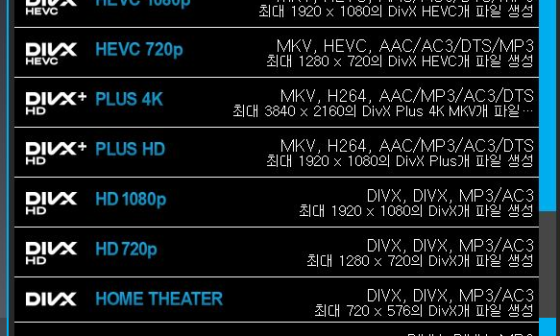
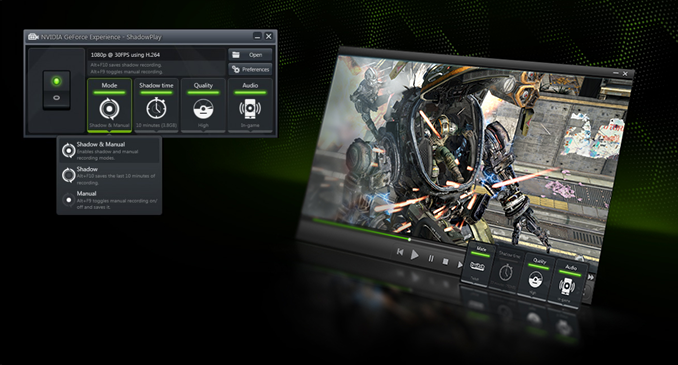
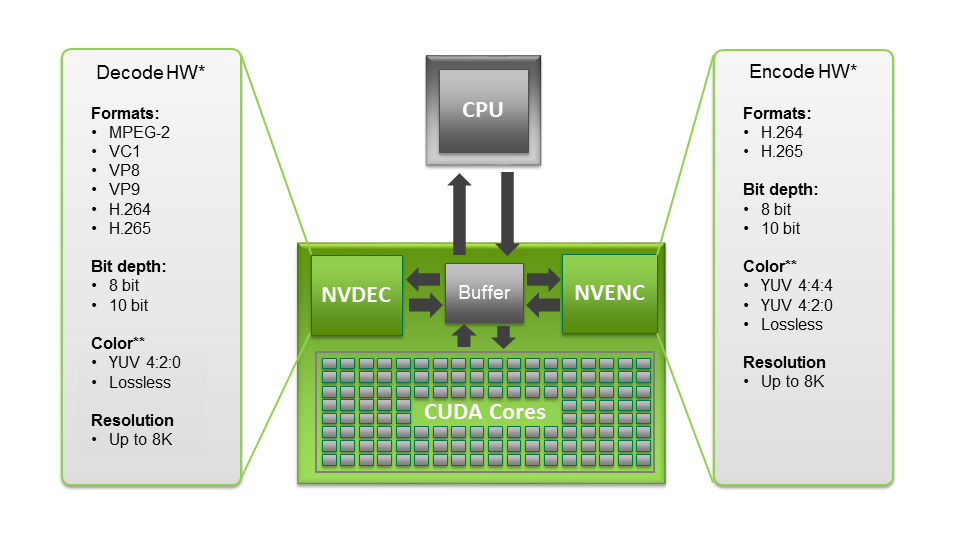




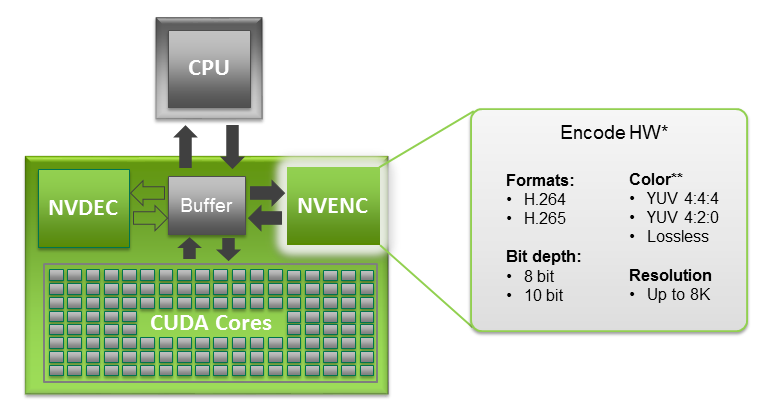 NVIDIA GPUs - beginning with the Kepler generation - contain a hardware-based encoder (referred to as NVENC) which provides fully-accelerated hardware-based video encoding and is independent of graphics performance. With complete encoding (which is computationally complex) offloaded to NVENC, the graphics engine and the CPU are free for other operations. For example, in a game recording scenario, encoding being completely offloaded to NVENC makes the graphics engine bandwidth fully available for game rendering.
NVIDIA GPUs - beginning with the Kepler generation - contain a hardware-based encoder (referred to as NVENC) which provides fully-accelerated hardware-based video encoding and is independent of graphics performance. With complete encoding (which is computationally complex) offloaded to NVENC, the graphics engine and the CPU are free for other operations. For example, in a game recording scenario, encoding being completely offloaded to NVENC makes the graphics engine bandwidth fully available for game rendering.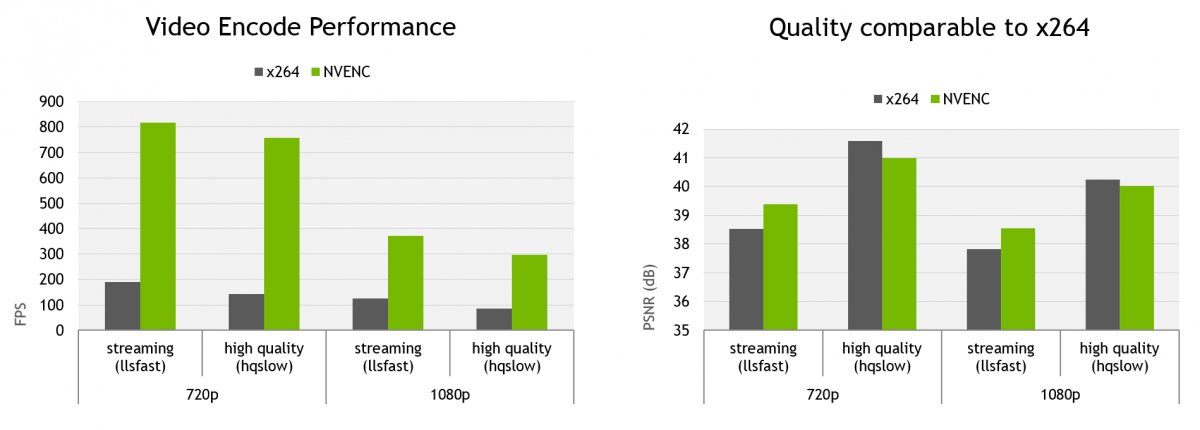

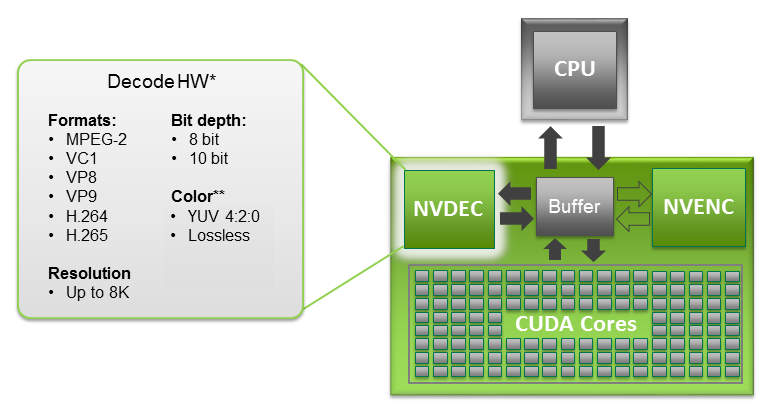 NVIDIA GPUs contain a hardware-based decoder (referred to as NVDEC) which provides fully-accelerated hardware-based video decoding for several popular codecs. With complete decoding offloaded to NVDEC the graphics engine and the CPU are free for other operations. NVDEC supports much faster than real-time decoding which makes it suitable to be used for transcoding applications, in addition to video playback applications.
NVIDIA GPUs contain a hardware-based decoder (referred to as NVDEC) which provides fully-accelerated hardware-based video decoding for several popular codecs. With complete decoding offloaded to NVDEC the graphics engine and the CPU are free for other operations. NVDEC supports much faster than real-time decoding which makes it suitable to be used for transcoding applications, in addition to video playback applications.